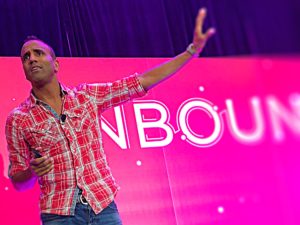Todd Rose is the Director of Mind, Brain, and Education at Harvard University and author of The End of Average, easily one of my top 5 favorite books. The book, as the name suggests, is focused on the social impact of making critical decisions on averages of people. Rodd Rose presents the idea of jagged talent, more commonly referred to strengths and weaknesses. In this, he devotes a substantial part of the book to the concepts and criteria involved in hiring talent for success.
Below are excerpts from the book on this topic:
“At first, Google made its hiring decisions the same way that most Fortune 500 companies did: by looking at each job applicant’s SAT scores, academic GPA, and diploma and hiring those applicants who ranked at the very top 3. Before long, the Google campus at Mountain View was full of employees with near-flawless SATs, valedictorian-level grades, and advanced degrees from the likes of Caltech, Stanford, MIT, and Harvard.”
“Despite Google’s continued growth and profitability, by the mid–2000s there were signs that something was wrong with the way it was selecting talent. Many of its hires were not performing the way management had imagined, and there was a growing sense within Google that company recruiters and managers were ignoring many candidates whose talent was not getting captured by the familiar metrics used by most companies, such as grades, test scores, and diplomas.”
“Google, Deloitte, and Microsoft, however, discovered that the idea that talent can be boiled down to a number that we can compare to a neat average simply doesn’t work. But why?”
What is at the root of the unexpected failure of ranking?
“In 2004, Todd Carlisle became an analyst in the Google human resources department, where he helped facilitate interactions between Google project managers who needed to hire new employees and recruiters who put together “hiring packets” about job candidates that the managers could use to make their hiring decisions. At the time, a candidate’s GPA and standardized test scores held a prominent place in these packets. But Carlisle noticed a very curious phenomenon: increasingly, project managers were asking recruiters to include additional information about the candidates. Some wanted to know whether the candidates had competed in programming competitions. Others wanted to know if their hobbies included chess or playing in a band. It seemed every project manager had a pet idea about what extra information was salient when making a hiring decision. ‘One day I just realized, if the traditional metrics—the grades and test scores—were really so great, why was everyone supplementing them with additional, clearly nontraditional metrics?’ Carlisle told me. ‘That’s when I decided to do the experiment.’ Carlisle harbored the private feeling that there were probably a lot of talented people out there that Google was missing out on, and he thought part of the problem was an overemphasis on a small set of familiar metrics.”
The Complex Whole Candidate Results:
- Discovered test scores such as SAT, were not predictive at all.
- Winning competitions in a professional field was also not predictive.
- Grades actually did matter, but not as much as most would think.
- Not one characteristic was discovered that actually was an accurate measurement of success.
“A century of averagarian business models stemming from Taylorism has convinced us that for the system to win, the individual must be viewed as a cell on a spreadsheet—like a disposable Average Employee.”
This conviction is spectacularly wrong.
“Throughout the book, I’ve shared the stories of companies like Deloitte, Google, the Adler Group, and IGN—who have adopted, even if implicitly, the principles of individuality with great results. By abandoning the mental barriers of one-dimensional thinking, essentialist thinking, and normative thinking, these companies have been able to create highly engaged and competitive workforces.”
Rose, Todd. The End of Average: How We Succeed in a World That Values Sameness, HarperCollins.
Todd Rose’s research and approach to embracing the complex person is both fascinating and staggering. Check out more from Todd Rose HERE for his fantastic TedTalk.
See Keenan’s Thoughts from Inbound17 on Hiring


